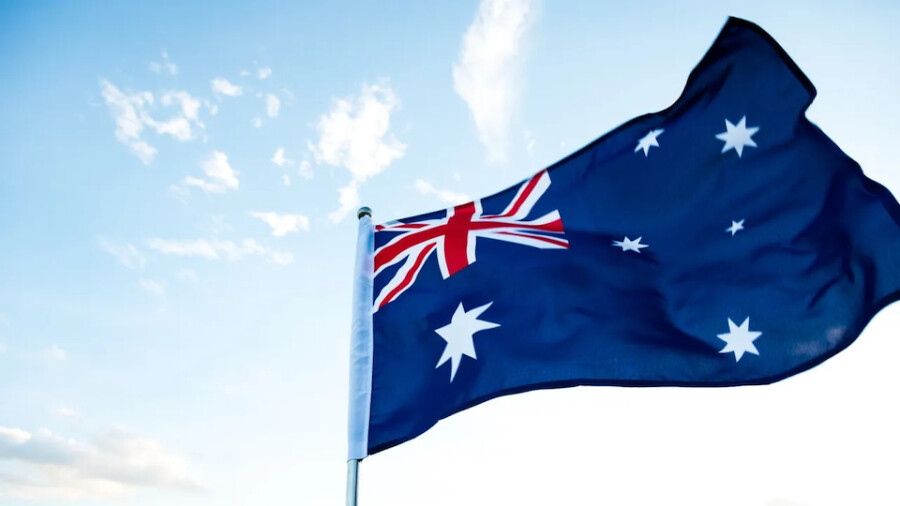
CANBERRA, Australia — The Australian government announced Wednesday that it will not require adult websites to implement age verification.
According to a report by The Guardian, the decision was made due to “concerns about privacy and the lack of maturity of the technology.”
After a five-month delay since the country’s eSafety commissioner, the vocally anti-porn Julie Inman Grant, submitted her road map for imposing age verification requirements on “online pornographic sites” back in March, Communications Minister Michelle Rowland finally released the document Wednesday, along with a response.
The Australian government instructed Inman Grant “to work with the industry to develop a new code to educate parents on how to access filtering software and limit children’s access to such material or sites that are not appropriate,” the Guardian reported.
“It is clear from the roadmap at present, each type of age verification or age assurance technology comes with its own privacy, security, effectiveness or implementation issues,” the government’s response to Inman Grant’s proposal stated.
The government stressed that any age verification technology “must work effectively without circumvention, must be able to be applied to pornography hosted outside Australia, and not introduce the risk to personal information for adults who choose to access legal pornography,” The Guardian reported.
Inman Grant’s road map, the government explained, “makes clear that a decision to mandate age assurance is not yet ready to be taken.”
A Top Australian Censor Endorsed by Foreign Anti-Porn Lobbies
As XBIZ reported, Inman Grant has acknowledged having conversations with U.S.-based, religiously-inspired anti-porn lobby NCOSE. She even appeared on an NCOSE podcast at the Coalition to End Sexual Exploitation summit in July 2021, shortly after the Australian Parliament passed the country’s Online Safety Act.
Before moving to Australia, Inman Grant received degrees from Boston University and American University, worked in politics in Washington D.C. and then for tech giants Microsoft, Twitter and Adobe. According to her official bio, she now claims to “lead the world’s first government regulatory agency committed to keeping its citizens safer online.” She was reappointed for a further five-year term by the Australian government in Jan. 2022.
The road map was originally commissioned by the right-wing government of Prime Minister Scott Morrison in June 2020 following a parliamentary inquiry into age verification for online adult content. The Morrison government endorsed Inman Grant’s proposal to institute a number of intrusive measures to determine people’s identity and age before accessing sexual content.
In November 2021, Australian investigative outlet Crikey published a lengthy report on Inman Grant’s obsession with banning online porn.
The Crikey report revealed documents, obtained under Australia’s Freedom of Information Act, in which the country’s top internet regulator revealed explicit animosity toward press coverage of her contacts with NCOSE and other foreign crusading organizations.
Unlike the U.S., Australia does not have any blanket protections of free speech like the First Amendment, or a Section 230 analog protecting platforms from liability for third-party uploads.
FSC Applauds Australian Government’s Decision
Free Speech Coalition (FSC) saluted the Australian government decision to not mandate age verification for adult sites, calling it for “sensible and judicious.”
“The decision not to impose mandatory age verification at this time is a victory for the privacy of Australians,” FSC said through a statement.
This is the rest of FSC’s statement.
As explained in its Response to the Roadmap for Age Verification, the government found that “age assurance technologies are immature, and present privacy, security, implementation and enforcement risks”. Rather than jeopardize the data security of Australians, the government increased its commitment to funding education and technology to keep children safe online, including the Family Friendly Filter program, which tests and accredits parental control and content filtering software.
“In recognition of the limitations and potential risks associated with current age verification technologies, Australia’s government has chosen to prioritize the protection of citizens’ sensitive information while preserving their access to lawful content. We commend them for taking a measured approach to this issue,” said Alison Boden, Executive Director of the Free Speech Coalition. “The decision not to rush into enforcing age verification demonstrates a commitment to well-informed policy-making that respects the rights of both consumers and content providers.”
The Free Speech Coalition remains committed to collaborating with governments, industry stakeholders, and advocacy groups to ensure responsible practices that protect children, safeguard privacy, and uphold free speech rights. We are encouraged by the Australian government’s approach and stand ready to contribute our expertise to future discussions on this important matter.
